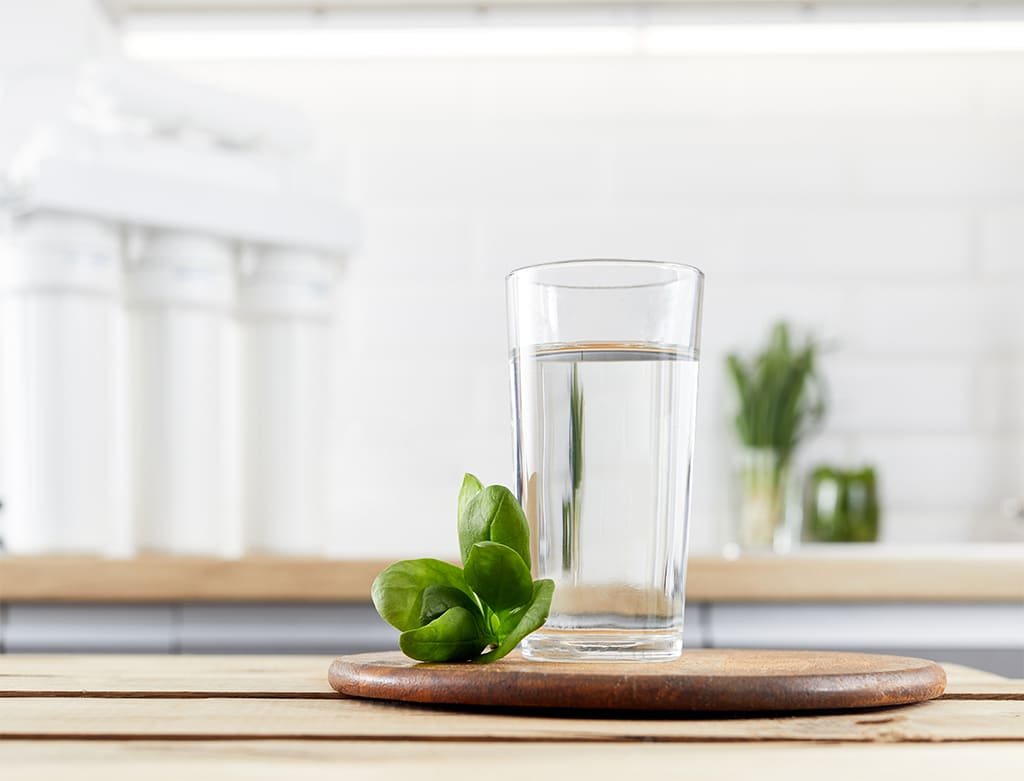
Water Softeners VS Water Filtration Systems | Myrtle Beach, SC
If the United States has one of the cleanest water supplies in the world, why do you need a water filter? And why does water need to be softened? If you have been asking yourself these questions, this blog sheds light on why you need a water filter.
Well, water from your main water line is subjected to strict regulations to ensure it is safe. But this doesn’t mean it is devoid of contaminants or doesn’t pick up other pollutants by the time it reaches your home.
Water filters and softeners are made to get rid of these contaminants. But is one better than the other? Do you need both? Continue reading to understand the difference and similarities between the two systems.
How Do Water Filters Work?
Water filtration systems remove sediment, bacteria, chlorine, metals, chemicals, and other contaminants to make water safe for drinking and cooking and improve the taste and smell of water.
Filtration systems can either be whole-house or point-of-use systems. They can be further categorized into the different ways they remove contaminants.
Sediment filters, for example, remove particles from the water. On the other hand, complex systems like reverse osmosis filters provide high-quality drinking water.
How Do Water Softeners Work?
Water softeners are a subcategory of water filtration systems. They make hard water soft. Water that has a high concentration of minerals like calcium and magnesium is said to be hard water.
Hard water can lead to dry and itchy skin, increased water bills, and scale buildup in pipes. Cleaning agents do not dissolve well in hard water, and you will use more soap and detergents to wash dishes and do the laundry. Hard water can negatively affect the efficiency of your water heater and can shorten its lifespan.
Even though water softeners are often categorized as water filters, they do not use filters to make water soft. Instead, they remove calcium and magnesium by exchanging them with sodium or other minerals. Other softeners change the way the minerals react with surfaces and other chemicals.
How to Choose Between the Two
Water filtration systems and water softeners are not mutually exclusive. Depending on the quality of your water, you might even opt for both. Before choosing a water filtration system, you should have your water tested by a state-licensed lab.
If you live in Myrtle Beach, SC, your water might not be that hard, but it may still contain other contaminants. Once you know the quality of your water, you can start looking for suitable water filtration systems for your home.
A point-of-use water filter is ideal for those concerned about chemicals who want pure drinking water. Of all the water filtration systems, reverse osmosis (RO) water filters remove the largest contaminants and provide the cleanest water. They are also more expensive and are not a great whole-house option.
Other whole-house water filtration systems may not remove as many contaminants as an RO filter but can still provide clean water for general use. They can remove discoloration and bad odors and supply water to every point in the house.
If hard water is your main concern, opt for a water softener. But because water softeners do not remove chemicals and sediments, the water might still be unsafe for drinking.
Most water softeners use salt to remove calcium, which might be a problem for people with dietary issues. Salt-based water softeners are restricted in some localities. Water conditioners can be used where salt is an issue, and the water is not too hard.
Cost and Maintenance
Water filtration systems and softeners do not vary greatly in pricing. The price largely depends on how large and comprehensive the system is. On the other hand, maintenance costs can differ.
For water filters, you’ll have to regularly exchange filters to ensure they continue to purify water effectively. The frequency of replacements can range from once a week to twice a year, depending on the type of water filter.
As for water softeners, you’ll need to refill the salt or potassium once a month, depending on how hard the water is. Some water filtration systems and most water softeners discharge the filtered contaminants into the wastewater, increasing water consumption and reflecting on your water bill.
Except for a countertop pitcher and some faucet attachments, all these filtration systems will need to be installed and serviced by a licensed plumber.
Conclusion
Water filters and softeners are both essential water purification systems. One will give you clean drinking water, while the other will provide soft water for bathing and cleaning.
If you cannot choose between the two but do not want to install both of them, a combined or two-in-one water purification system could be your answer.
These systems can both soften and filter water. Just be sure to consult a reputable plumber first, as these systems can be pretty expensive, and some may not be as efficient as they claim to be.
Looking for a Plumbing Pro? Benjamin Franklin Plumbing of Myrtle Beach Is the Expert You Need
If you are still unsure about which system you want or need more information, Benjamin Franklin Plumbing of Myrtle Beach is here to help. We have extensive experience in all things concerning plumbing. We strive to be the best and most trusted plumbing company in Myrtle Beach, SC.
Apart from installing and servicing water filtration systems, our trained and licensed Myrtle Beach, SC plumbers also do general plumbing repairs, water heater installations, leak detection, and sewer line maintenance.
Our emergency plumbers are on call 24/7 and take care of any plumbing emergency promptly and efficiently. Plumbing emergencies happen unexpectedly and can be very costly to fix. Do not hesitate to call Benjamin Franklin Plumbing of Myrtle Beach if you think something is wrong with your home’s plumbing.

 843.582.0670
843.582.0670